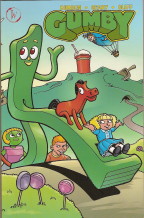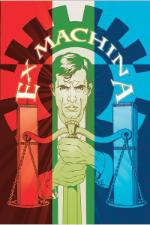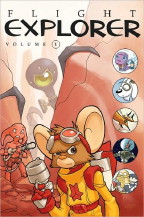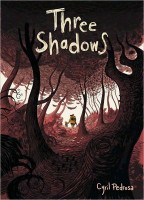Manga Friday: Plight of the Themeless

Here’s the manga I read this week (no, seriously, that’s the only thing they have in common) –
Kaze no Hana, Vol. 1
By Ushio Mizta and Akitoski Ohta
Yen Press, 2008, $10.99
Momoka Futami is just your normal teenaged manga heroine – an amnesiac orphan who’s coming to live with her unknown family four years after the mysterious death of her parents. Oh, and she learns that she’s the rightful wielder of one of eight ancient magical swords that are need to keep back various monsters that regularly pop into existence in this town.
Kaze no Hana has a lot of characters, and they’re all related to each other somehow, and most of them have magical swords, and…it just turned into a Russian novel in my head, with the added problem that I couldn’t even keep some of them straight visually. (This is mostly my problem; they don’t look identical, but they’re different in manga ways rather than Western ways, which means I can’t tell people apart unless they’re in the same panel and I can compare them directly.)
So, um, Kaze no Hana is complex and interesting, but it made my head hurt, OK? And I really don’t need that from a comic about the secret family of people that kill monsters – I can get secret families killing monsters in a dozen places without any headaches.
Your mileage may vary…


 Here are three more graphic novels for readers of varied ages, gathered together for no better reason than because I read them all recently:
Here are three more graphic novels for readers of varied ages, gathered together for no better reason than because I read them all recently:
















